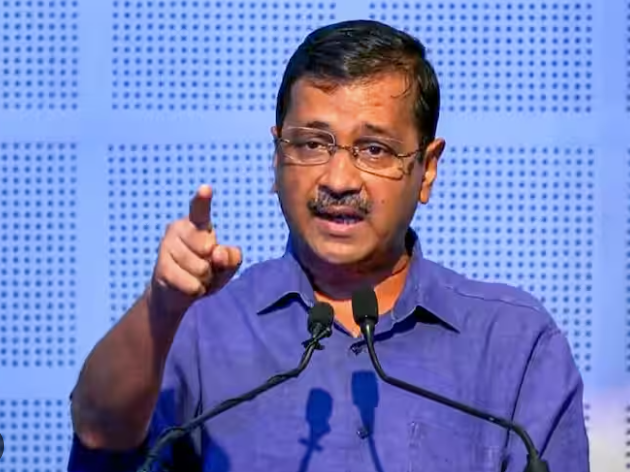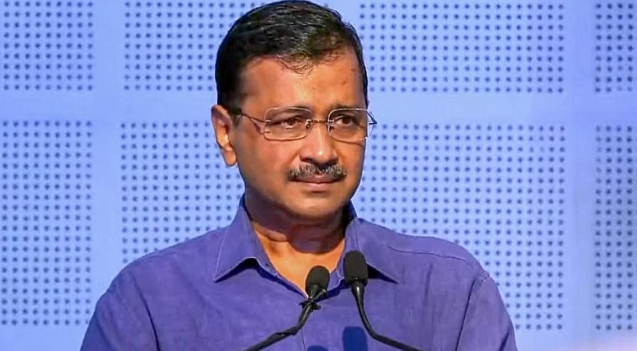
Arvind Kejriwal Faces Ongoing ED Summons Amidst Money Laundering Probe
Arvind Kejriwal, asking him to appear before it on January 18 for questioning in a money laundering probe
The provided information discusses the Enforcement Directorate’s (ED) issuance of fresh summons to Delhi Chief Minister Arvind Kejriwal, asking him to appear before it on January 18 for questioning in a money laundering probe related to irregularities in the Delhi excise policy for the year 2021-22.
Arvind Kejriwal had reportedly skipped the ED’s third summons, and in his response to that summons, he expressed his willingness to cooperate but claimed that the agency’s intention was to arrest him and prevent him from participating in election campaigning.
The ED’s investigation focuses on the formulation of the excise policy, meetings held before its finalization, and allegations of bribery. Arvind Kejriwal had previously ignored two summons on November 2 and December 22, dismissing them as “illegal and politically motivated.”
According to a charge sheet filed by the ED on December 2, 2023, naming Aam Aadmi Party leader Sanjay Singh and his aide Sarvesh Mishra, the ED alleges that the AAP used kickbacks amounting to ₹45 crore, generated through the excise policy, as part of its assembly elections campaign in Goa in 2022.
The provided information reveals significant details regarding the Enforcement Directorate’s (ED) allegations and investigations into the Delhi excise policy for 2021-22, implicating Aam Aadmi Party (AAP) leaders, including Delhi Chief Minister Arvind Kejriwal.

- Direct Beneficiary: The recent summons and charge sheets indicate that this is the first time the ED has mentioned the specific amount of purported kickbacks (₹100 crore) and directly called the AAP Arvind Kejriwal a beneficiary of these illegal funds.
- Individual Leaders Named: The charge sheet alleges that some AAP leaders, including jailed AAP leader Manish Sisodia, former AAP communications in-charge Vijay Nair, and AAP leader Sanjay Singh, personally benefited from the proceeds of crime through bribes.
- Key Allegations and Conspiracy: The ED claims that the excise policy was formulated as part of a conspiracy by AAP leaders Arvind Kejriwal to continuously generate and channel illegal funds to themselves and the party. The agency asserts that the AAP used a portion of the ₹100-crore kickbacks during its campaign for the 2022 Goa assembly elections.
- Arvind Kejriwal’s Role: Arvind Kejriwalis implicated in the charge sheets, with one of them stating that he told a businessman about the trustworthiness of Vijay Nair. Additionally, references to alleged meetings, commissions for private players, and the involvement of political and business figures from the south in Delhi’s liquor business are mentioned.
- Charges Against Manish Sisodia and Sanjay Singh: The charge sheets implicate former deputy chief minister Manish Sisodia and AAP’s Rajya Sabha member Sanjay Singh. Both are currently in Tihar jail.
- Policy Background: The excise policy was intended to revitalize Delhi’s liquor business, introducing changes such as replacing a sales-volume-based regime with a license fee for traders, swankier stores, and discounts on liquor purchases.
- Scrapping of the Policy: The policy faced scrutiny, and the Lieutenant Governor’s order for a probe into alleged irregularities led to its eventual scrapping. The AAP Arvind Kejriwal accused the former Lieutenant Governor, Anil Baijal, of sabotaging the policy with last-minute changes.
- Financial Implications: The ED has pegged the loss in excise policy irregularities at ₹2,873 crore, indicating the scale of financial implications associated with the alleged wrongdoing.
- Criminal Proceedings and Tihar Jail: The information reveals that both Manish Sisodia and Sanjay Singh, prominent AAP leaders, are currently lodged in Tihar jail as part of the ongoing investigation and legal proceedings. This underscores the gravity of the allegations and the legal consequences faced by individuals implicated in the case.
- Key Statements and Witnesses: The charge sheets reference statements from individuals such as C Arvind, who was reportedly present at meetings related to the excise policy. These statements contribute to the ED’s narrative, alleging that decisions affecting the policy were made at the highest levels within the AAP leadership.
- Loss Estimates and Alleged Irregularities: The ED’s claim of a ₹2,873 crore loss due to irregularities in the excise policy highlights the significant financial impact of the alleged wrongdoing. Such large-scale financial implications are likely to further intensify legal scrutiny and public attention on the case.
- Political Implications: The accusations against the AAP, a prominent political party, may have broader political implications, potentially affecting public perception and electoral dynamics. The ED’s findings, especially those directly implicating the party and its leaders as beneficiaries of illicit funds, could have ramifications on the political landscape.
- Prevention of Money Laundering Act (PMLA): The charge sheets make reference to the Prevention of Money Laundering Act, indicating that the ED is investigating about Arvind Kejriwal financial transactions associated with the alleged irregularities. The inclusion of PMLA suggests a comprehensive approach to addressing the financial aspects of the case.
The developments outlined suggest a complex investigation involving multiple leaders and intricate financial transactions, with potential ramifications on both political and legal fronts.
For the latest updates-click here.

